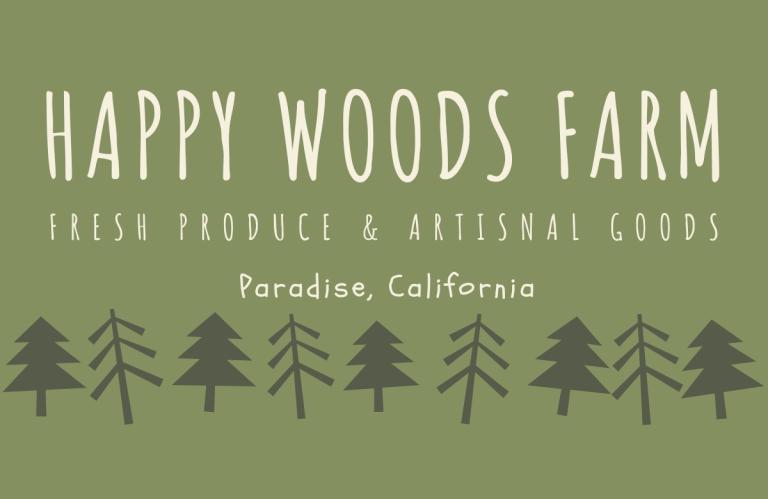
There’s a rhythm to gardening and farming, a cadence that pulls you out of your head and places you squarely into the present moment. At Happy Woods Farm, where Michael and I have spent years rebuilding after the devastation of the Camp Fire—which is 6 years to the day—this rhythm isn’t just background noise, it’s the soundtrack to a life more deeply lived. It’s not about over-spiritualizing every tomato vine or blackberry bramble, but recognizing that tending to the earth can bring us back to something essential, something we’ve long forgotten in the hum of modern life.
The Scouring of the Shire and the Aftermath of Fire
For those familiar with Tolkien’s The Lord of the Rings, the Scouring of the Shire is one of the most poignant moments in the entire tale. It’s a reminder that no place, no matter how peaceful, is untouched by the world’s chaos. When I returned to Michael’s property after the fire, it felt like our own version of the Shire, scorched and scarred by forces outside our control. But just as the Hobbits rebuilt their home with their hands, their hope, and a certain stubbornness, so too did we at what is now becoming Happy Woods Farm.
There’s something humbling about coaxing life back into a place that has known destruction. When you plant a Brandywine tomato seed or dig the soil to make room for a young fruit tree, you’re performing an act of faith. Not the kind that asks for miracles but the kind that requires patience, care, and getting dirt under your fingernails. It’s a return to simplicity, even if just for a moment.
The Cultivation of Connection
At Happy Woods Farm, we grow blackberries that burst with sweetness, pumpkins that swell under the sun’s watchful gaze, and peppers that add a little heat to life’s bland moments. We have rows of corn, flower varieties that attract bees and butterflies, and fruit trees that reach skyward in defiance of what they once faced. Every plant has its cycle, its season, its need for water and sunlight. And while I wouldn’t claim that tending to these plants is a mystical act, there is something undeniably grounding about it.
Tending to the earth connects us—not just to the land, but to each other. Sharing the farm’s harvest with neighbors or enjoying the day’s pickings with my family feels like a nod to our collective dependence on the natural world, a dependence that technology, for all its convenience, often makes us forget. And don’t get me wrong: I’m not here to demonize our phones or the internet. You may even be reading this article on your phone, and that’s fine. But it’s about balance, isn’t it? It’s about remembering to look up from our screens and feel the soil in our hands, even if just for a few minutes each day.
The Art of Grounded Living
In a world that increasingly moves at breakneck speed, farming and gardening act as counterweights. They remind us that growth takes time, that seasons of rest are as important as seasons of productivity. There’s a beautiful resistance in planting something that won’t bear fruit for months, even years. It’s the kind of slow satisfaction that can’t be packaged or downloaded.
And while the modern world offers plenty of conveniences, it’s all too easy to slip into a mode of constant distraction. If there’s one thing gardening teaches, it’s that real life—the kind that feeds your spirit—happens when you’re engaged, when you’re observant, when you’re willing to pause and be part of the world that doesn’t run on notifications. Yes, technology keeps us informed, connected, and entertained. But the quiet moments spent pulling weeds, checking for pests, or admiring the way morning dew clings to a pumpkin vine remind us to be present. They teach us that while the digital world offers many things, it can’t replace the grounding, tactile experience of nature.
Lessons from the Land
The act of planting a seed and nurturing it to harvest is a kind of conversation with the earth. When you place a tomato seed in the soil, you’re engaging in an ancient dialogue that has sustained humanity for millennia. You water, you wait, you watch. You celebrate the first green sprouts, then the yellow blossoms, and finally, the ripe fruit. It’s a reminder that some things cannot be rushed, that growth—whether of plants, relationships, or ourselves—requires both effort and patience. As Michael always says, “You can’t force a corn stalk to grow by tugging at it; you have to be patient as it grows at its own natural pace.”
At Happy Woods Farm, we’re reminded of this every day. The land, like life, is unpredictable. Late frosts, pests, and droughts test our resolve—none more than during a freak hailstorm in May, 2022! But when we pull fresh blackberries off the vine or watch the corn sway in a summer breeze, we remember why we do this. It’s not just for the harvest but for the practice itself. For the moments that make us pause, breathe, and remember that we’re part of something bigger.
An Invitation to Balance
I’m not saying we should all throw our phones into the compost pile and go live off the grid (though if that’s your thing, go for it). But there’s something to be said for finding balance. Let’s not forget that life happens in the real world too—in the garden, in the quiet moments where your hands are caked with dirt, and you’re connected to something more honest than the endless scroll.
So, whether you’re growing Brandywine tomatoes, tending to a few potted plants on a balcony, or simply taking a moment to notice the trees on your walk to work, remember that the practice of gardening and farming isn’t just good for the body—it’s nourishment for the soul. At Happy Woods Farm, we’ve rebuilt from ashes, and with each season, we’re reminded that life, with all its hardships, is also full of promise. It’s in the growth, the pause, and the reminder to stay grounded—literally and metaphorically.
Also, if you’ve been digging my work on here, and want to see me be able to continue writing as close to full-time as humanly possible, please take a look at my Patreon page at www.patreon.com/mjdistefano. Even $1 a month helps bigly!














